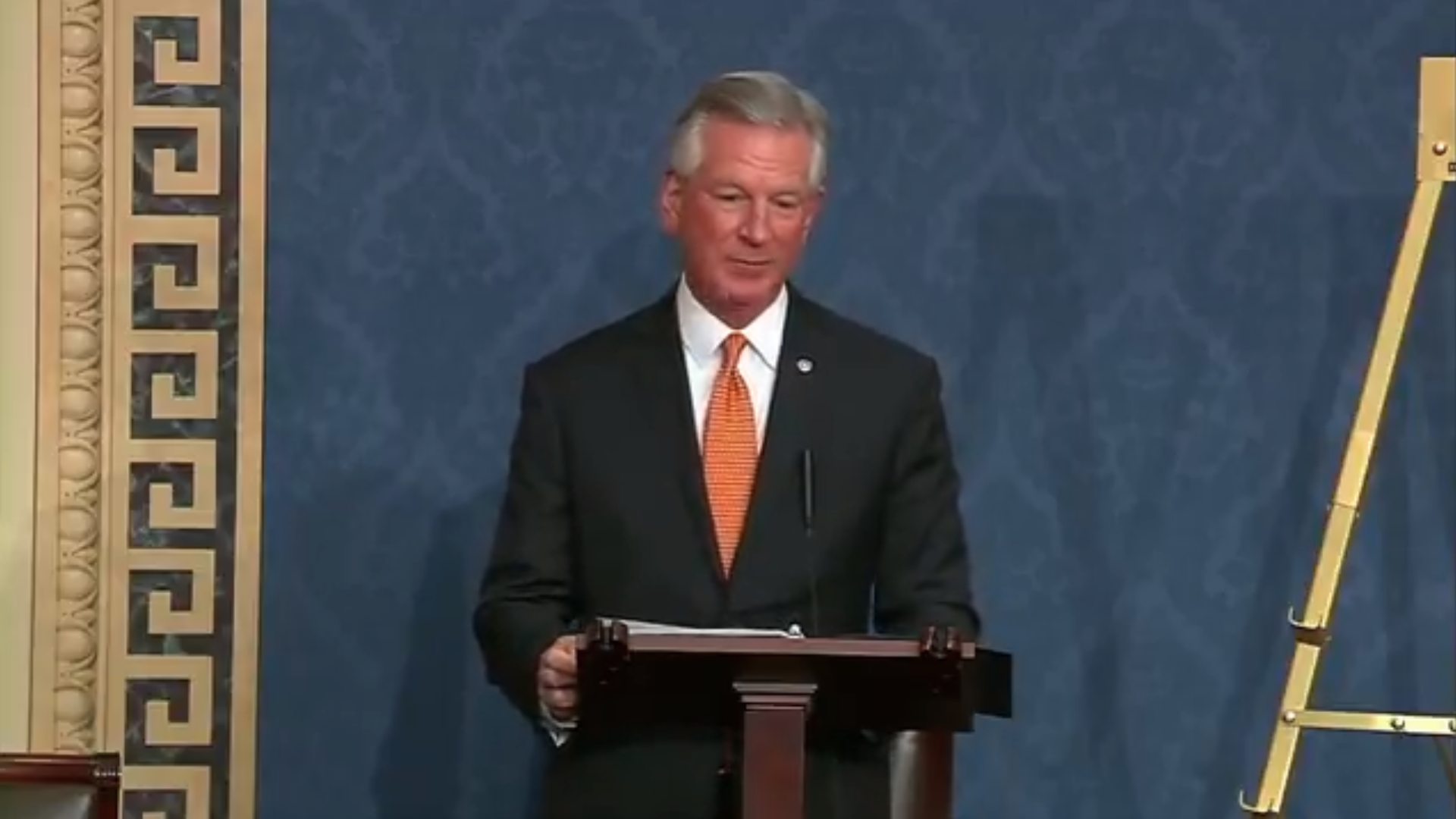Senator Tommy Tuberville, R-Alabama, has cosponsored the Metropolitan Statistical Area Preservation Act (S.2057), which was introduced on a bipartisan basis on June 15 by Sens. John Thune, R-South Dakota, and Mark Kelly, D-Arizona.
The bipartisan legislation permanently sets the population threshold for a Metropolitan Statistical Area at its current level of 50,000 people. Passage of this legislation would block ongoing efforts by the Office of Management and Budget to increase the MSA population threshold to 100,000.
The proposal was previously made by the Trump administration but has since been adopted by President Joe Biden’s administration.
“The current OMB proposal under consideration by the Biden Administration would have serious negative impacts on the Alabama cities of Florence, Muscle Shoals, Decatur, Gadsden, Anniston, Oxford, Auburn, Opelika, Dothan, Daphne, Fairhope, and Foley,” Tuberville explained in a letter to the OMB. “A significant number of federal grant programs are only accessible to cities designated as MSAs. Altering the existing standards in the manner proposed by the OMB would prevent these cities from utilizing these programs. The change in designation would also undermine the ability of these cities to recruit industry, as many companies will only consider locating in areas that are designated as MSAs. Alabama cities are not the only jurisdictions that would suffer as a result of the OMB’s proposed change to the MSA population threshold. Some 144 midsized cities across the nation would be negatively impacted.”
Tuberville is the eighth senator to cosponsor S.2057 – two Democrats and six Republicans.
Tuberville addressed his concerns about the proposal in a letter to the OMB in March. Tuberville voiced his strong opposition to this proposal after receiving outreach from several of those Alabama cities that would be directly impacted if they were to lose MSA designation if this policy change is implemented. His co-sponsorship of this bipartisan bill puts added pressure on Biden’s OMB to reconsider this proposal.
“Increasing the population threshold that is needed to be considered a ‘metropolitan statistical area’ would adversely affect communities in nearly every state, including South Dakota,” Thune said in a statement. “The Metropolitan Statistical Area Preservation Act would protect communities like Rapid City from losing their current classification as a metropolitan area, address concerns I have heard from constituents in western South Dakota, and protect them from potentially losing access to certain federal funds.”
“As we work to beat this virus and rebuild our economy, it’s a priority for me to ensure a strong recovery in rural and small-town Arizona,” Kelly said. “I’ve heard concerns from Mayors across Arizona about how this policy change could impact their ability to support their communities by qualifying for federal transportation, housing, and other funds. That’s why I’m introducing this bipartisan legislation to ensure communities can get the support they need to continue to grow and prosper.”
“Rapid City’s trade area is nearly 150,000 people, so losing its MSA status because its corporate boundary is only 80,000 people is counterproductive,” said president and CEO of Elevate Rapid City Tom Johnson. “It provides cities incentives for bad growth policies like unnecessary annexation and sprawl and could saddle small cities with excessive infrastructure costs to try and get to a new and arbitrary 100,000 MSA designation. Additionally, as small cities continue to grow and attract talent, it’s critical that they be seen as MSAs by young professionals who are relocating from large cities to small cities, but seeking similar amenities.”
Clarence E. Anthony is the CEO and executive director of the National League of Cities.
“The National League of Cities thanks Senators Thune and Kelly for stepping up to the calls from America’s cities and towns who are working to meet their economic development and recruitment goals and recover from the recent pandemic,” Anthony explained. “Every action in Washington can lead to consequences in communities across America which is why it is imperative that Congress continue to ensure they receive and react to valuable feedback from local officials directly when Washington wants to make a change, even when that change is as small as the definition of a metropolitan statistical area.”
Joe McKinney is the executive director of the National Association of Development Organizations.
“The National Association of Development Organizations endorses this important legislation designed to help protect the status of smaller metropolitan regions across the country,” McKinney said. “Maintaining the status of smaller MPO designations will help ensure that they remain eligible to receive federal funding needed to carry out critical planning functions. NADO stands in opposition to OMB’s proposal to change the population standard that constitutes the core of a Metropolitan Statistical Area from 50,000 to 100,000 minimum population. Such a reclassification would effectively redefine existing distinctions between ‘urban’ and ‘rural’ which could have wide-ranging complexities, risks, and potentially harmful impacts. NADO commends Senator Thune’s and Senator Kelly’s leadership in taking steps to protect the status of smaller metropolitan regions, and their eligibility to access federal resources.”
The bill is currently awaiting action through the committee process.
Tuberville is serving in his first term in the U.S. after a long and distinguished career as a football coach, most notably as the head football coach for Auburn University. Tuberville defeated incumbent Sen. Doug Jones, D-Alabama, in the 2020 election.




















































